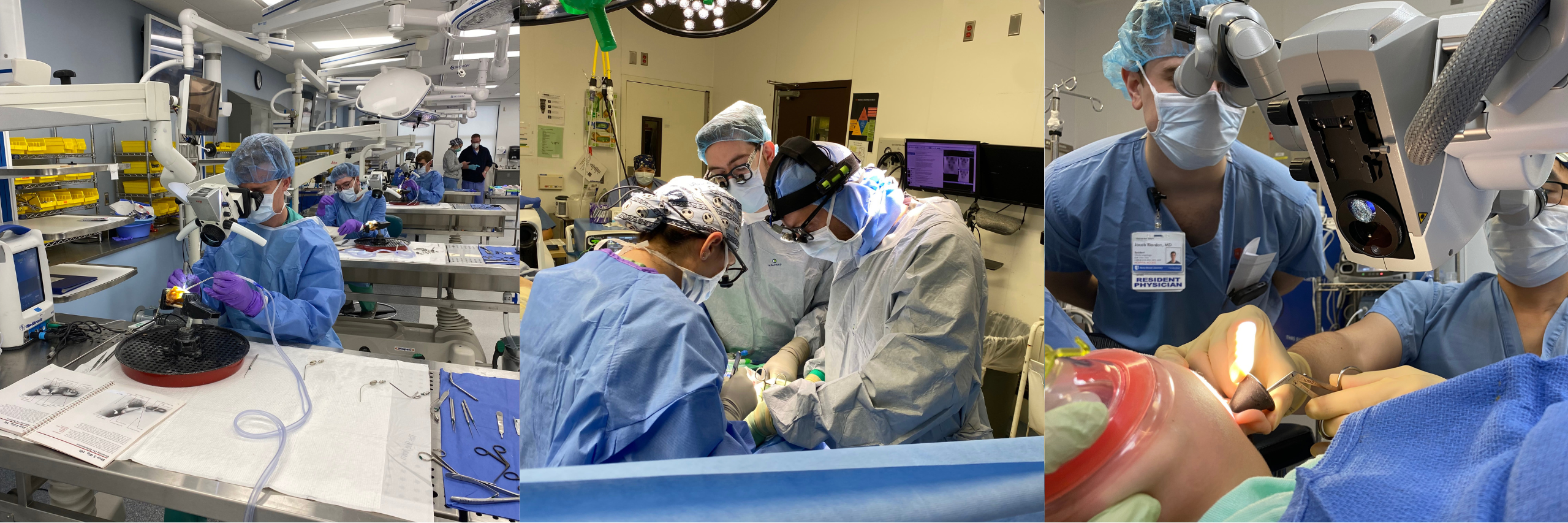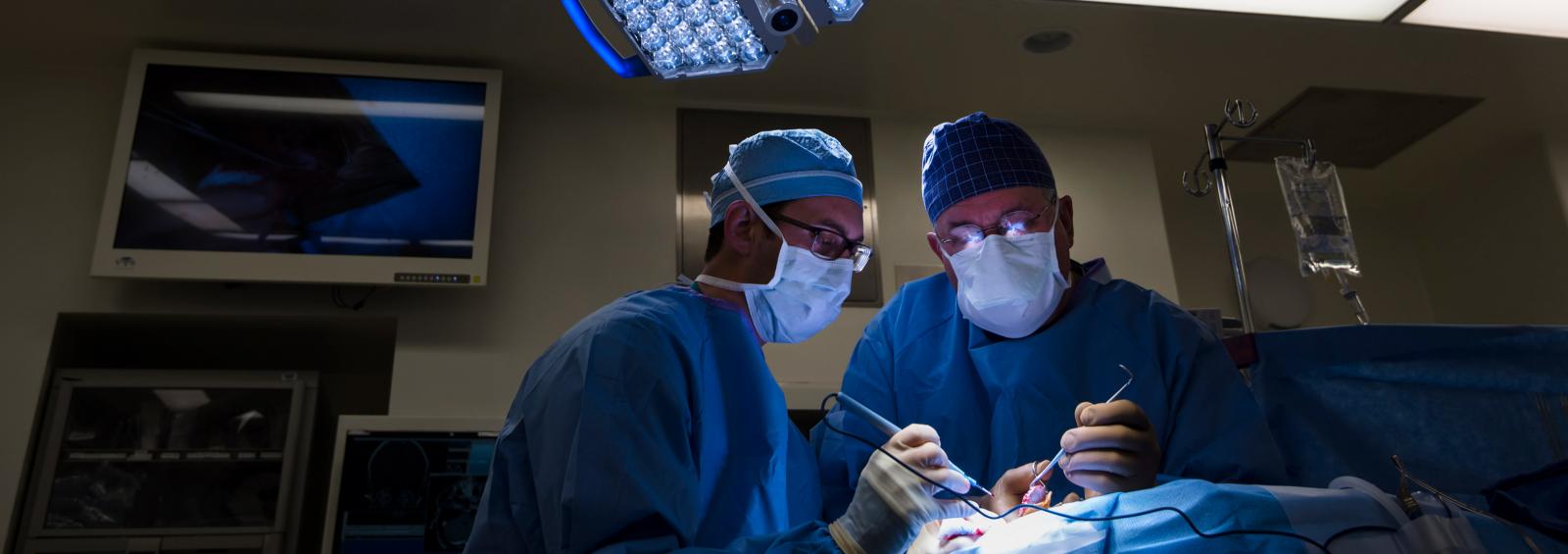Exploring the Area of Otolaryngology: What to Anticipate When You Get In Touch With an ENT
Otolaryngology, commonly described as ENT, includes the medical diagnosis and therapy of throat, nose, and ear conditions. For those experiencing relevant problems, speaking with an ENT professional can provide clearness and relief. Understanding what to anticipate throughout such assessments is necessary for efficient interaction and treatment. This review will detail crucial facets of the ENT experience, including common reasons for brows through and the processes entailed in medical diagnosis and treatment.

Recognizing Otolaryngology: An Introduction
Otolaryngology, typically referred to as ENT (Ear, throat, and nose) medication, is a specific branch of medicine that focuses on the medical diagnosis and treatment of problems impacting these critical locations of the human body. This field includes a wide variety of problems, including those pertaining to hearing, balance, respiratory function, and speech. Otolaryngologists are educated to handle both surgical and clinical therapies, utilizing innovative strategies and technologies. Their know-how extends beyond traditional ailments, resolving issues such as allergies, sinus infections, and hearing loss. Additionally, they play a critical duty in the administration of head and neck cancers cells, offering thorough care tailored to individual patient demands. Generally, otolaryngology continues to be crucial for preserving wellness and lifestyle in afflicted individuals.
Usual Reasons to See an ENT Expert
Numerous people seek the knowledge of an ENT expert for a variety of factors, showing the varied nature of conditions that influence the throat, nose, and ear. Typical concerns consist of chronic sinus problems, which frequently brings about consistent nasal blockage and facial discomfort. Allergies and their connected signs, such as itching and sneezing, also prompt visits to these professionals (ENT Doctor). Hearing loss, whether unexpected or gradual, is another considerable factor for assessment. In enhancement, people might seek analysis for throat problems, consisting of relentless hoarseness or ingesting difficulties. Rest apnea, defined by disturbed breathing throughout rest, is frequently addressed by ENT professionals also. Each of these problems highlights the importance of specialized care in managing complicated ENT-related wellness concerns
Planning for Your ENT Consultation
When preparing for an ENT visit, it is vital to gather relevant information and think about any particular problems. People should compile a detailed medical background, including previous ear, nose, or throat issues, surgical treatments, and existing medicines. Documenting signs and symptoms-- such as seriousness, frequency, and period-- can supply valuable understandings for the ENT expert. In addition, individuals need to prepare a checklist of questions they desire to ask, ensuring that all worries are dealt with during the go to. Bringing along any kind of appropriate medical records or examination outcomes can further assist the ENT in recognizing the person's condition. Ultimately, people must validate their appointment details, including date, time, and area, to decrease any type of last-minute confusion. Correct preparation can improve the performance of the assessment and bring about better outcomes.
What to Expect During the Appointment
As the examination begins, the client can expect to involve in a detailed discussion with the ENT professional regarding their symptoms and clinical background. The specialist will ask regarding the duration, frequency, and intensity of signs such as hearing loss, nasal congestion, or sore throat. Furthermore, the person's previous clinical problems, drugs, and any relevant family members history will be evaluated, helping the professional in developing a total understanding of the individual's wellness. The ENT might likewise inquire about way of life elements, such as exposure to irritants or irritants. This open discussion establishes a foundation for the assessment, guaranteeing that the client's concerns are resolved and setting the phase for any necessary evaluations or recommendations for treatment.
Analysis Tests and Treatments in Otolaryngology
A variety of diagnostic tests and treatments are essential in otolaryngology to accurately examine and diagnose problems affecting the nose, throat, and ear. Typical tests consist of audiometry, which measures hearing feature, and tympanometry, analyzing middle ear pressure. Nasal endoscopy allows visualization of the nasal flows and sinuses, while laryngoscopy examines the throat and singing cables. Imaging methods, such as CT scans and MRIs, offer detailed views of head and neck frameworks. Allergy screening may also be conducted to identify triggers for sinus or breathing concerns. These diagnostic devices make it possible for ENT experts to create a thorough understanding of people' problems, this post guaranteeing customized and effective administration plans. Proper medical diagnosis is important for successful therapy outcomes in otolaryngology.
Treatment Options Offered by ENT Specialists
ENT experts supply a check these guys out selection of therapy options customized to attend to particular conditions affecting the throat, ear, and nose. These treatments range from conventional techniques, such as medicine and way of living alterations, to even more intrusive treatments. For circumstances, allergies might be handled with antihistamines or immunotherapy, while chronic sinusitis could need nasal corticosteroids or sinus surgical treatment. For hearing loss, ENT professionals often advise hearing aids or surgical treatments like cochlear implants. In situations of throat conditions, alternatives can consist of speech treatment or surgeries to remove blockages. Furthermore, they might offer guidance for handling rest apnea, including using CPAP devices or surgical interventions. Overall, the goal is to boost clients' lifestyle with personalized care and reliable therapy approaches.
When to Seek Follow-Up Treatment With an ENT
When to look for follow-up care with an ENT expert is vital for handling ongoing signs or difficulties related to ear, nose, and throat conditions, recognizing. People ought to think about arranging a follow-up appointment if signs continue despite preliminary therapy, such as chronic ear discomfort, nasal congestion, or throat discomfort. Changes in hearing, balance problems, or unusual nasal discharge may additionally call for more evaluation. Additionally, if a patient experiences negative effects from recommended drugs or has gone through a surgery, follow-up treatment is necessary to check recovery and attend to any type of worries. Prompt consultations can guarantee effective management of conditions, prevent potential complications, and offer satisfaction relating to one's health. Seeking follow-up treatment promotes proactive wellness administration in otolaryngology.
Regularly Asked Questions

What Qualifications Should I Look for in an ENT Expert?
When looking for an ENT expert, one ought to try to find board find this certification, pertinent experience, and solid person reviews. In addition, reliable interaction abilities and a thoughtful technique can substantially enhance the total treatment experience.
Just how Do I Select the Right ENT for My Requirements?
Choosing the appropriate ENT specialist entails reviewing their credentials, experience, and individual evaluations (ENT Doctor). It is necessary to consider their communication design and method to therapy, ensuring they align with the individual's details health needs and preferences
Exist Any Type Of Risks Linked With ENT Procedures?
The risks related to ENT procedures may include infection, bleeding, anesthetic complications, and prospective damage to bordering structures. Patients should review these risks with their medical professional to understand individual concerns and guarantee notified decisions.
How Can I Take Care Of Anxiety Before My ENT Consultation?
To take care of anxiety before a consultation, people can practice deep breathing exercises, imagine positive outcomes, prepare concerns ahead of time, and seek support from pals or family, cultivating a feeling of reassurance and peace.
What Should I Do if I Experience Adverse Effects From Therapy?
The person needs to without delay report them to their healthcare company if side effects from treatment occur. Changes to treatment or additional interventions might be needed to assure security and effectiveness in managing their problem - Otolaryngologist. As the consultation starts, the individual can anticipate to involve in a comprehensive conversation with the ENT professional about their signs and symptoms and medical background. These analysis tools make it possible for ENT experts to create a comprehensive understanding of clients' conditions, making sure customized and reliable administration plans. ENT specialists supply a variety of treatment choices tailored to resolve details conditions affecting the nose, throat, and ear. When seeking an ENT specialist, one need to look for board qualification, appropriate experience, and strong individual testimonials. Picking the appropriate ENT specialist involves evaluating their qualifications, experience, and client reviews